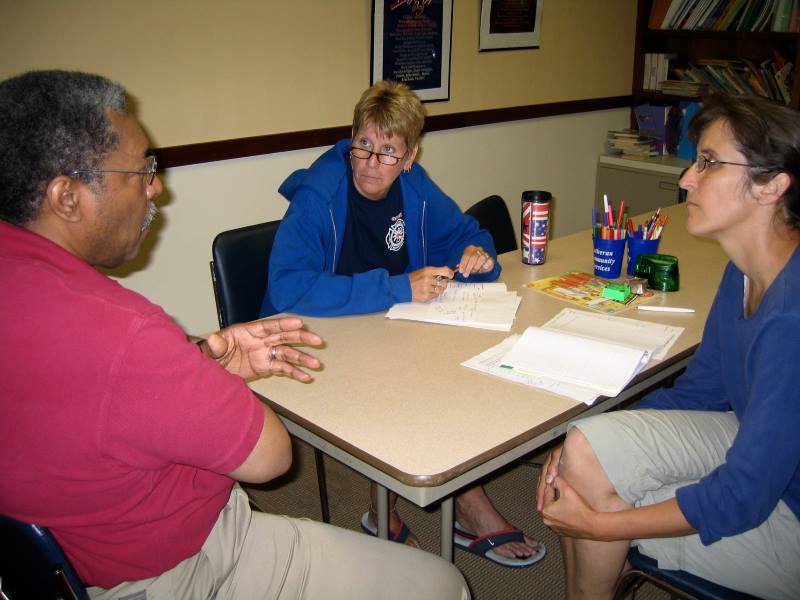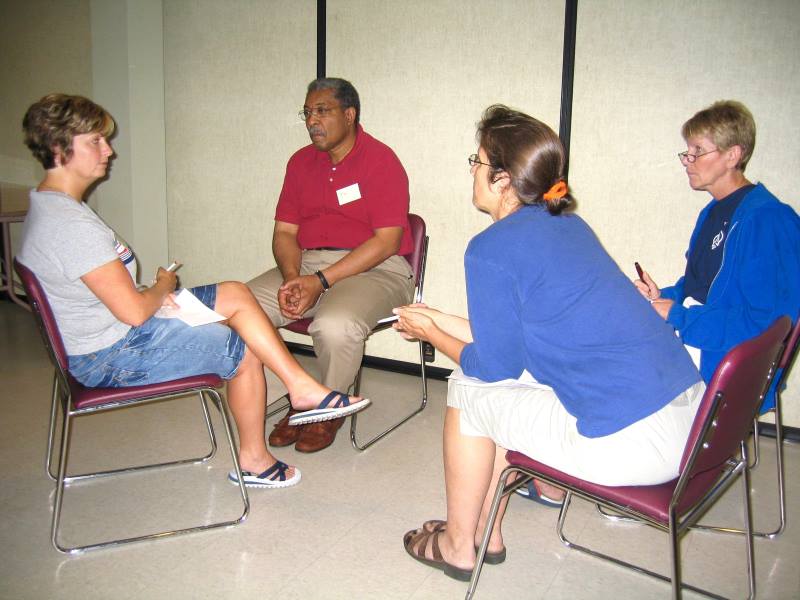WHAT IS INTERPERSONAL OR COMMUNITY MEDIATION?

Community Mediation or Interpersonal Mediation is a way to resolve conflict between individuals with the help of mediators who are trained in the process of dispute resolution. Interpersonal Mediation can play a role in making our communities safer and more peaceful to live in. Individuals are empowered and relationships within the community are strengthened when conflicts are resolved through cooperative processes.
Interpersonal Mediation Can Include a Wide Variety of Cases:
- disagreements between friends
- neighbor-to-neighbor problems
- family tensions and disagreements
- vandalism and property damage
- community issues
- organizational conflicts
- tenant/landlord disputes
- civil and small claims
- parenting time and modifications for child custody orders
How Does Interpersonal Mediation Work In Communities?
Cases are referred to community centers like ECR from a variety of sources, including court officials, police, pastors, counselors, doctors, attorneys, judges, and friends or by the disputants themselves.
At ECR, a typical case would go through these steps:
- ECR is contacted about the case by one or more of the disputants or by a third party. Names, telephone numbers, and other pertinent information are all noted on an intake form.
- An ECR case developer contacts both parties, either by telephone or in person, to explain the process and scheduled the mediation session.
- A team of two to four ECR mediators is assembled for the session, and briefed by the case developer.
- The mediation session is held, with additional sessions if necessary, and a mutually acceptable solution to the conflict is developed.
- Later, a follow-up call is made to ask each disputant how the agreement is working.
The vast majority of people who choose skilled community mediation as a means to deal with their conflicts report that they are very satisfied with the result.

So, is Community Mediation for You?
The mediator does not take sides and makes sure the process is fair for everyone. As an initial step each person is given the opportunity to explain, uninterrupted, his or her view of the situation. Mediators help the parties in conflict to work out an acceptable settlement of their differences.
Here is what you need to know. . .
Community Mediations are as follows:
For - Families, Friends, Vandalism, Harassment, Civil and Small Claims, Workplaces, Neighbors, Landlords/Tenants, Community Organizations, Parenting Time and Modifications for Child Custody Orders.
Confidential - The mediators keep all information shared during the mediation confidential (notification that a mediation occurred is sent to the referral agency if there is
one).
Convenient - Mediations are held at either the ECR office or a a chosen site. Times and locations are flexible.
Voluntary - Parties to the dispute can choose whether or not to take part.
Fair - Mediators do not take sides. Instead, they provide a safe process through which the parties can reach a mutually satisfactory agreement.
Affordable - Mediation with ECR involves nominal fees compared to attorney’s fees and legal costs. A session will not exceed three hours, and a resolution is usually reached during one session. However, the scheduling of additional sessions is possible when needed.
